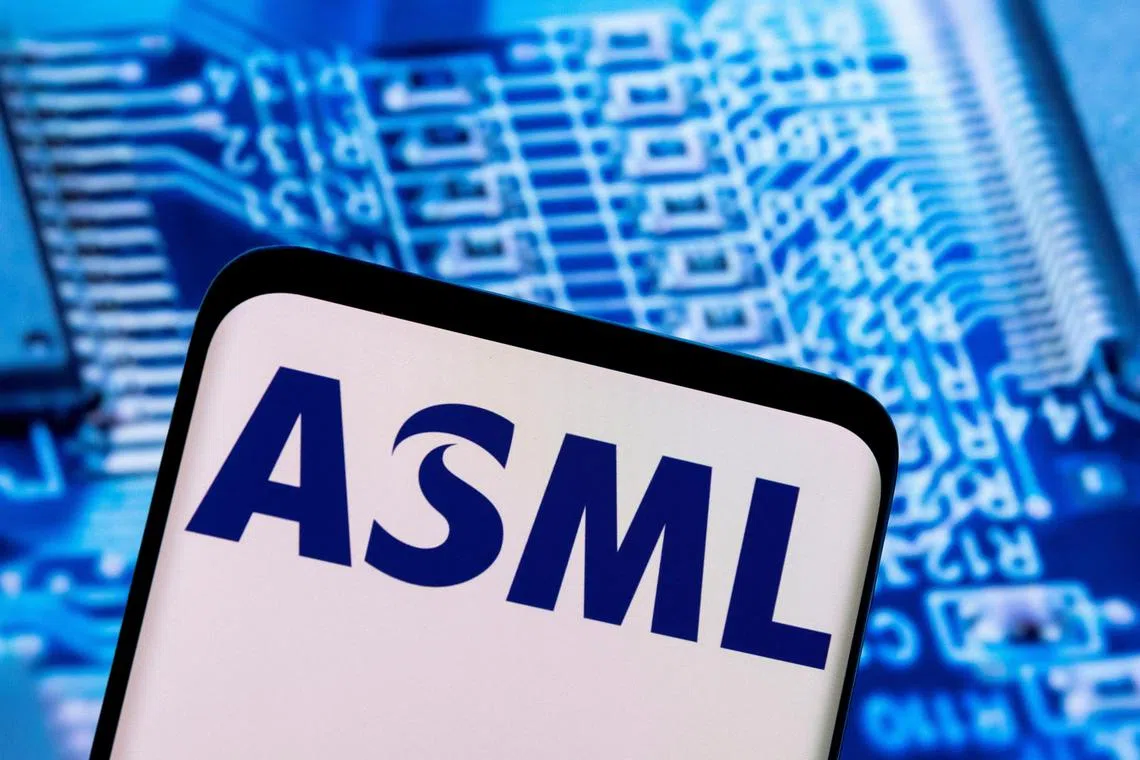Netherlands plans curbs on China tech exports in deal with US: Sources
Sign up now: Get ST's newsletters delivered to your inbox

The restrictions could hit Dutch firm ASML Holding.
PHOTO: REUTERS
Follow topic:
Amsterdam - Dutch officials are planning new controls on exports of chipmaking equipment to China, according to people familiar with the matter, potentially aligning their trade rules with United States efforts to restrict Beijing’s access to high-end technology.
An agreement on the Dutch curbs could come as soon as next month, according to the people, adding that negotiations are ongoing and no final decision has been made.
The Dutch foreign trade ministry and the White House’s National Security Council declined to comment.
The Dutch move, which would essentially codify and potentially expand its unofficial ban on some technology sales to China, is a step towards bulking up US efforts to limit Beijing’s chipmaking and military ambitions.
The Netherlands and Japan are the world’s top suppliers, outside the US, of machinery and know-how needed to make advanced semiconductors, but Washington is yet to get those allies fully on board.
The new export limits under consideration by the Netherlands could bar the sale of equipment capable of making chips designated as 14 nanometres or those that are more advanced, according to the people, using a reference to the industry standard for measuring semiconductor technology. That move may put Dutch regulations at least partly in line with US restrictions announced on Oct 7.
The restrictions could hit Dutch firm ASML Holding, which is one of the world’s most important suppliers of machines needed to make advanced semiconductors and has been caught up in Washington’s efforts to limit Beijing’s ability to produce its own high-end chips. China accounted for about 15 per cent of the firm’s revenue last year, according to its latest annual report.
It is unclear yet what the new restrictions mean for ASML’s sales to China. Officials are still discussing the details, but the step may effectively stop exports of the company’s immersion lithography machines, its second-most advanced gear, for Chinese clients who use them in combination with tools from other suppliers to manufacture 14-nanometre chips or those that are more advanced.
Washington has some leverage over the Netherlands as ASML uses US-made components. Since early October, American officials have threatened that if allies do not comply with the new export-control measures, they could ban the sale of foreign equipment that contains even the smallest amount of US technologies to China.
Dutch officials are inclined to collaborate with the US on restricting China’s access to chip technologies because they share similar national security concerns, the people said.
Senior US National Security Council official Tarun Chhabra and Under Secretary of Commerce for Industry and Security Alan Estevez travelled to the Netherlands in late November to discuss the export-control issues with Dutch officials, according to the people.
Dutch Prime Minister Mark Rutte told Bloomberg Television last month that the Netherlands is coordinating on the issue with the US and Japan, as well as South Korea, another major semiconductor producer.
Mr Estevez said at an event in Washington on Tuesday that the US discussions with allies have been “very, very positive”, although he called them “a work in progress”. BLOOMBERG

